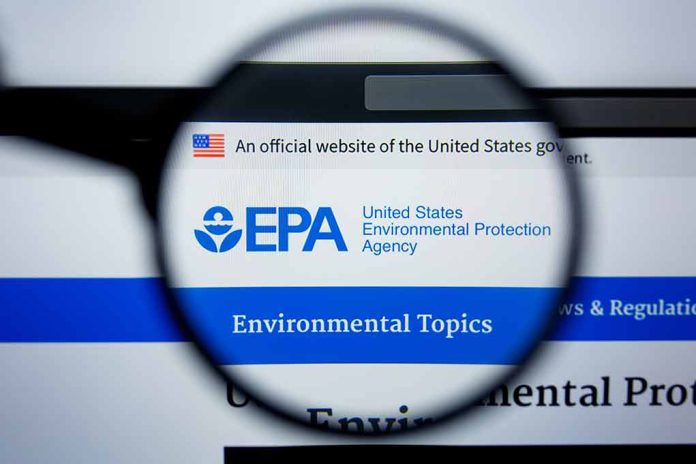
Lee Zeldin plans to reclaim $20 billion in climate grants to enforce accountability and oversight previously lacking under the Biden administration.
Key Takeaways
- Lee Zeldin is working to reclaim $20 billion from Biden’s climate initiative for enhanced scrutiny.
- The funds in question were part of the Greenhouse Gas Reduction Fund under the 2022 Inflation Reduction Act.
- Zeldin is involving the EPA Office of Inspector General and the Justice Department for accountability.
- This initiative aligns with Zeldin’s commitment to cutting waste and abuse within the EPA.
- The reclaimed funds were hastily awarded to eight entities with minimal oversight.
Reassessing Climate Funds
Lee Zeldin, the EPA Administrator, is spearheading an initiative to reclaim nearly $20 billion in climate-related grants distributed before the current administration. These grants were originally part of the 2022 Inflation Reduction Act’s Greenhouse Gas Reduction Fund. Zeldin’s emphasis on transparency and accountability reflects his intention to correct the lack of oversight during the grants’ distribution. By involving the EPA Office of Inspector General and the Justice Department, Zeldin seeks to ensure responsible stewardship of public funds.
The grants were administered through a nameless bank without sufficient scrutiny, raising concerns over the speed and transparency of fund allocation.
“This scheme was the first of its kind in EPA history,” Zeldin pointed out, highlighting the deliberate bypass of regular financial protocols. The EPA Administrator also intends to terminate the financial agent agreement with the bank handling the funds, demanding the immediate return of resources to enable a systematic review.
MONEY NEWS: EPA CHIEF ZELDIN VOWS TO RECLAIM $20 BILLION FROM BIDEN'S CLIMATE SPENDING! 💰
Zeldin accuses Biden administration of mismanagement, aims to restore funds!
“The days of irresponsibly shoveling boatloads of cash to far-left activist groups in the name of…
— Bill Mitchell (@mitchellvii) February 13, 2025
Implications of Zeldin’s Initiative
The targeted recovery aligns with Zeldin’s pledge during his Senate confirmation to critically scrutinize grant allocations under the climate laws. The National Clean Investment Fund and the Clean Communities Investment Accelerator, essential components within the Greenhouse Gas Reduction Fund, were intended for projects benefiting low-income, disadvantaged, and rural communities. Yet, the alleged rush and reduced oversight in fund distribution have become problematic points in the eyes of the administration.
“One of my very top priorities at EPA is to be an excellent steward of your hard-earned tax dollars. There will be zero tolerance of any waste and abuse. We will review every penny that has gone out the door. The days of irresponsibly shoveling boat loads of cash to far-left, activist groups in the name of environmental justice and climate equity are over,” said Zeldin.
This move by the Trump administration’s EPA is expected to face legal challenges as it scrutinizes the Inflation Reduction Act’s subsidies. Despite criticisms from organizations such as Dream.org, which expressed concerns about the US government’s inconsistent business policies, Zeldin remains firm on reestablishing disciplined and transparent management of EPA finances.
Looking Ahead
Zeldin’s dedication to clearer financial practices signifies a broader organizational shift towards a zero-tolerance policy on fiscal mismanagement. Such measures intend to bolster trust within the governmental sphere and ensure accountability. The efforts to reclaim improperly allocated funds echo a commitment to reassume control and meticulously review financial decisions, setting a new standard for judicious governmental resource management.
Zeldin’s planned involvement with the Justice Department underscores a proactive stance to rectify past financial oversights and fortify the credibility of environmental initiatives in serving public welfare.


